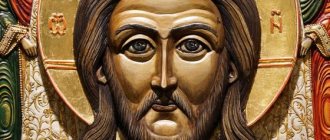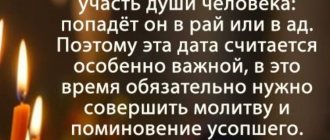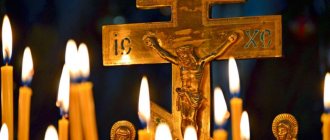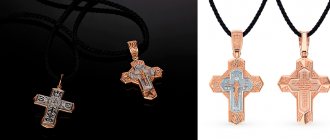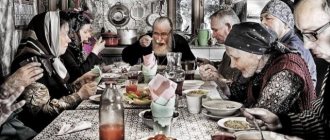Unpleasant situations happen very often in the life of every person. It is especially difficult to endure them when it comes to death, because it is not so easy to understand that you will no longer see a loved one. After the death of a person, it is necessary to preserve his memory, come to the grave on the specified days and take care of it. But is it possible to go to the cemetery on the birthday of the deceased, and most importantly, how to behave correctly on this day? Regarding this issue, during specific periods, opinions emerged and they were different.
What is death in the Christian tradition
In Orthodoxy, the birthday of a deceased person is considered the day of his death. According to Christian teachings, only the earthly human body dies, as it is sung in the funeral canon - “you are earth, and to earth you will go (go).” And just as God created the human body from earth (dust) at creation, so after death it immediately turns into earth - it becomes very heavy, and gradually almost completely dissolves in the soil. And the human soul is what God gives to the human body at conception - an immortal spark, which during life is enclosed in the body, and after liberation (death), is born for a new, eternal life and goes back to God. It is not for nothing that in Orthodoxy death is called dormition (falling asleep). Therefore, when a person dies, his close people are sad at parting with him, but they believe that in due time they will be together again, in another, better world.
One of the most mysterious and incomprehensible events for humanity is death. We can only speculate about what happens to a person beyond this line. Fear of the unknown is a natural reaction that forces even the most notorious atheist, albeit to a minimal extent, to adhere to certain rules of conduct during the process, before and after the funeral. The traditions that are observed during this ritual are among the most revered in the world. Not everyone knows how to behave correctly if such grief occurs in a family. Our editors often receive requests to clarify certain issues. We will try to answer the most popular of them from ethical and religious points of view.
To begin with, here are the most common superstitions associated with funerals :
- close windows and doors in the house;
- put food, money and things in the coffin (lately mobile phones);
- placing a pancake on the face of the deceased, and then eating it, believing that this eliminates the sins of the deceased;
- consider that the closest relatives of the deceased cannot participate in moving the coffin, so as not to think that they are happy about the death of the deceased;
- to believe that a person who returns to the house after removing the body and before returning from the cemetery will certainly die soon;
- consider that you cannot look out the window at the funeral procession, otherwise you will soon die;
- at the wake, place a glass of vodka and bread “for the deceased”;
- save this “funeral glass” until the fortieth day;
- pour vodka on the grave mound;
- before lowering the coffin, throw metal money into the grave to “buy back the land”;
- attach metal glasses to the monument for commemoration with vodka;
- kiss your fingers and touch them to the edge of the grave;
- say: “May you rest in peace”;
- scatter bread crumbs over the grave;
- scatter fir branches along the road to the cemetery;
- believe that the soul of the deceased can take the form of a bird or a bee;
- believe that if the deceased is not inveterate, then his soul remains on earth as a ghost;
- to believe that a person who accidentally stands between the coffin and the altar during the funeral service will certainly die soon;
- believe that burial soil, which is given at an absentee funeral service, cannot be kept at home for more than one day;
- believe that cremation can cause illness in the children or grandchildren of the person being cremated;
- commemorate only with light (white) alcoholic drinks: vodka, if wine, then only white;
- in honor of the soul, be sure to cook only those dishes that the deceased loved;
- at funerals, eat only with spoons (it’s a sin to eat with forks).
The custom of not serving knives and forks at the table at funerals, apparently one of the modern superstitious customs, was born in Soviet canteens, where these cutlery were not accepted and where funerals were held. And only then, from the absence, a “theory” was born: so as not to inject the deceased. It is believed that this “tradition” appeared in the mid-19th century among merchants. People, inflamed by “funeral” alcohol, moved at the table to the issue of dividing up the inheritance, and cutting and stabbing objects, i.e. forks and knives led to serious injuries, so they were removed from funeral service.
- believe that if the deceased has a long coffin, it means a new deceased.
- believe that the deceased hears until the priest says over him: “Eternal memory...”.
- distribute soap at funerals so that the deceased can wash themselves in the next world.
- distribute handkerchiefs to all those present at the wake (it is believed that by wiping ourselves with a handkerchief, we remember the deceased).
- cut all the “loops” on the deceased, including the trouser belt, the collar of the tie and the lace of the body cross.
— to believe that if something falls from the table during a funeral dinner, then picking up what has fallen is a sin.
- bury children with belts, “so that they can gather the fruits of paradise in their bosoms.”
- after the funeral, do not clean the house for 40 days.
- after the funeral, do not turn off the lights in the house for 40 days;
- after the funeral, do not sleep on the bed of the deceased for 40 days;
- hang mirrors in a house where there is a deceased person;
Is it possible to watch TV after the funeral?
Many people adhere to this rule: as long as the deceased is in the house, it is necessary to cover surfaces that can reflect something, for example, mirrors, a TV. This superstition has nothing to do with Orthodox beliefs, but relates to paganism. It is believed that after death, a person’s soul can be drawn into a mirror and unable to get out of there, it will wander forever, never finding peace for itself. After the deceased is taken out of the room, the cloths can be removed, but some keep them closed for 9 or even 40 days.
Other sources claim that hanging mirrors is generally a fairly understandable custom. When someone died in the house, the coffin with his body was placed in the largest room. The psalter was constantly read at the coffin of the deceased, and worshipers could enter at any time and pray near the coffin. Accordingly, everything in the room was arranged so that everything around was conducive to prayer. Mirrors, book spines, figurines or dishes in the sideboard, vases and other small things distract the eye, and therefore do not contribute to the mood. So in the room where the psalter is read, they began to hide everything extraneous from view with draperies. The Psalter has not been read for a long time, but mirrors are hung in all rooms, even for up to 40 days. A normal custom that has turned into superstition.
By the way, watching TV after the funeral of the deceased is a separate issue. What matters is not just the fact that you watch TV, but what exactly you watch. Watching entertainment programs and entertaining films is prohibited. Most often, an interval of 9 days is maintained. In addition, out of respect for the deceased, you should not play it at high volume. Watching the news, for example, is not prohibited.
Is it possible to celebrate a birthday after a funeral?
This issue is resolved only by how important the memory and repose of the deceased person is for those celebrating. The Church does not set an exact time frame for mourning days, but in the first days after the incident it still recommends paying more attention to prayers and commemorations of the deceased.
Norms of ethics also do not give contrary recommendations on this issue. There is no need to have a noisy celebration. If you still want to somehow celebrate the holiday (especially if the birthday boy is a child), you can arrange it quietly and in a family way, without loud music and a noisy party. Honoring the memory of a departed loved one is one of the hallmarks of a civilized society.
Is it possible to have sex after a funeral?
The Orthodox Church answers this question in the following way: mourning for a deceased relative is a time when all the attention of relatives should be directed to prayers.
Ethical considerations also recommend showing respect for memory and abandoning this idea. It is quite possible that a person grieving a loss will simply not have the time for such pleasures. Along with this, again, there are no clear time limits for the ban on sex, therefore, as soon as the heart comes to terms with the loss and the feeling of grief has dulled, you can distract yourself in a similar way. Each person sets the boundaries of what is permitted for himself independently.
Is it possible to drink after a funeral?
According to church ministers, drinking alcoholic beverages, even for the purpose of commemorating the deceased, is unacceptable and even harmful to the soul of the person commemorated.
In pre-Soviet times, it was not customary to drink at funerals. The main and most beneficial memorial is prayer. There is no point in alcoholic commemoration. The only thing that needs to be consumed after the funeral during the wake is kutia. Everything else is not necessary.
As you know, alcohol is an enemy not only of spiritual and physical health, but also of common sense. Often, during a memorial ceremony, due to the fault of extra degrees, disputes begin, and sometimes even fights between guests, which, for ethical reasons, is completely inappropriate at such an event.
Is it possible to listen to music after a funeral?
This question is often asked by people who are experiencing the loss of a loved one. Here, as with watching TV, everything depends not on the fact of listening to music, but on the nature of listening and the semantic content.
It is better to exclude everything that can be called entertainment music during mourning. Listening to peaceful, calm (preferably classical) music is allowed. You shouldn't turn it on loud either.
It is also often practiced to listen to the deceased person’s favorite compositions. For ethical reasons, this is also a kind of tribute to memory. A funeral orchestra often plays at funerals. These are rather echoes of Soviet times. From the point of view of religion, the most correct thing to do is to sing and listen to prayer chants.
Is it possible to have a wedding immediately after a funeral?
There are also cases when a loved one leaves his family forever at the moment when she is preparing to marry off or marry one of her representatives. Most often, pre-wedding efforts entail spending a lot of money and, for purely rational reasons, the wedding is not cancelled, but at the celebration itself they mention the death of a loved one and pay tribute to his memory. There is nothing reprehensible in this; it all depends on the emotional state of the couple.
Orthodox tradition allows weddings even before 40 days. If we touch on the topic of a secular wedding, this is a worldly event, and like all others, it can be equated to entertainment events. You can celebrate a wedding, but without any frills. Or reschedule it at least within 9 days.
Is it possible to go on vacation after the funeral?
There is no ban on travel after a funeral. On the contrary, if a person who has lost a loved one suffers greatly about this, a trip may well be able to distract him from mourning thoughts and direct him in the right direction. Besides, everyone's vacation is different.
It is better to cancel everything that has to do with entertainment events (going to discos, bars, entertainment concerts).
From the point of view of Orthodoxy, vacation is also not a form of disrespectful behavior towards the deceased. It is important to remember to behave appropriately and remember the departed person with prayer and kind words.
Is it possible to make repairs after a funeral?
Signs that do not relate to Orthodoxy say that repairs in the house where the deceased lived cannot be done within 40 days. No changes can be made to the interior. In addition, all belongings of the deceased must be thrown away after 40 days.
There are also superstitions that say that blood relatives should not sleep on the bed on which a person died.
From an ethical point of view, repairs will only refresh the state of those grieving. It will help you get rid of things that remind you of the person. Although many, in memory of a departed loved one, strive to keep something that belonged to him. According to signs, this is again not worth doing. Therefore, repair will be a good solution in all cases.
Is it possible to wash immediately or the day after the funeral?
There is such a sign that says that as long as the deceased is in the house, until he is buried, you cannot wash, so you throw mud at him. Some people follow the rule even longer. This superstition has nothing in common with Orthodox teaching. But walking dirty for 9 or even 40 days is very difficult and completely unhygienic and unaesthetic, so you should think twice before blindly following all the rules and signs you overheard somewhere. Beliefs are beliefs, but common sense should not be neglected.
Is it possible to get a haircut after a funeral?
The Orthodox Church does not know this superstition in its history, but people believe and actively believe the sign that you cannot cut your hair after a funeral.
From an aesthetic point of view, there are no reasons to ban this procedure. So, if necessary or desired, you can safely go to the hairdresser and get a haircut.
In general, with regard to signs and all kinds of superstitions regarding death, they often even contradict the canons of Orthodoxy. The Church considers superstitions to be sinful echoes of the pagan past.
Is it possible to clean up after a funeral?
While the deceased is in the house, you cannot clean or take out the trash. According to legends, it is believed that the rest of the family members will die. When the deceased is removed from the house, the floor must be thoroughly washed. Blood relatives are prohibited from doing this. The Orthodox Church also denies this point and considers it superstition. From an ethical standpoint, there is nothing reprehensible in cleaning up after a funeral.
Should the children of the deceased participate in the coffin carrying?
Some believe that the children of the deceased, as the closest relatives after the spouse, do not participate in carrying the coffin, so as not to lose the prayerful mood and concentration at such an important moment of their life. It's a delusion. It all depends on the specific situation. When leaving, relatives take soil from the grave with them so as not to be afraid of the deceased. Returning home, they put the earth in a washstand and wash themselves with water from this earth. The custom of washing oneself after returning from a funeral is certainly observed today in the urban environment.
Can pregnant women visit cemeteries?
There is also a belief that pregnant women should not go to the cemetery. In fact, some women are very emotional, and a visit to a cemetery, and often the accompanying hysteria, has a harmful effect on the child.
Distribution of clothes and belongings of the deceased after the funeral: is it possible?
Many people believe that the clothes of the deceased cannot be distributed within the first forty days. But this is superstition. It is better to distribute the clothes of the deceased (as alms for him), or personal belongings as souvenirs to loved ones, immediately after his death or immediately after his death. Moreover, it is in the first forty days that it is necessary to intensively do alms and distribute the things of the deceased in order to appease God - the Righteous Judge, who will carry out a preliminary judgment on the soul on the fortieth day. Friends, in memory of a friend, may be left with books or some souvenirs reminiscent of the deceased. Moreover, if there was a will or will of the newly deceased, this needs to be done as soon as possible. The deceased is considered newly deceased until the fortieth day. When a wife buries her husband, in order to remarry, she must unbutton the bottom button of the deceased’s shirt. When someone dies, a “travel” bundle is collected for him: an onion, an iron cup, millet or rice, a wooden spoon, thread and a needle. All this is given to those in need so that it will be useful to the deceased in the next world.
What should be placed in the coffin of the deceased? Established superstitions and church recommendations.
One of the most common superstitions is that a handkerchief must be placed in the hand of the deceased and a cross in his left hand: “In the next world God will scold him, but he will wipe away his tears with a handkerchief and cross himself with his right hand.” While reading the psalter, a sieve is placed under the book to “sift out” the sins of the deceased. Some, when reading the Psalter for a deceased person, place bread and water. This custom is folk, dating back to paganism, and has no basis in the canons and traditions of the Church. Therefore, you should not put water and bread when reading the Psalter for the deceased. Some people place a stick or twig in the coffin of the deceased. This custom, like most church beliefs, comes from ignorance. In past times, in order to make a coffin according to a person’s height, the deceased was measured with a “smerk”, that is, the length of the “smerk” corresponded to the height of the deceased. This “darkness” was placed in the coffin with the deceased. “Smerok” does not have any religious symbols, so there is no need to put any sticks in the coffin.
How should a funeral meal end?
There is a custom to end the funeral meal by eating jelly with milk. Some priests currently recommend replacing cow's milk with soy milk on fasting days. (However, this conflicts with the fact that soy products cannot be used because they are all genetically modified).
Another superstition: Superstitions watch which foot the priest will enter the house where the deceased is: if with the right, then it’s good, if with the left, it’s bad. While the deceased is lying in the house, they throw a knife into a tub of drinking water so that the deceased does not drink water from this tub at night. During the time that the deceased is in the house, they do not lend any food, and also do not give fire to anyone in the house.
If the owner or mistress of the house dies: If the owner or mistress dies, then all doors and exits are tied with red lace or thread so that the household does not follow the owner.
Superstitions about the coffin and stools: When the coffin is taken out for farewell, it is placed on stools. As soon as it is lifted, you need to quickly grab them and turn them upside down. - “so that another coffin does not lie on these stools.” The stools on which the coffin stood can only be corrected by touching the seat to the ground, this again makes the stools suitable for use, or, on the contrary, depending on the region, they rush to sit on this chair so that “all troubles die.”
Caring for a loved one even after his death: In some places, after a funeral, for three nights in a row, they light a wax candle in the house where the deceased lay, put two breads and two apples, put a mug of water or a glass of vodka on each fire for the soul of the deceased, so that the deceased could come to his home and eat for three days.
How not to scare away your guardian angel?
In some places it is believed that after the death of a person, his guardian angel remains in the house of the deceased for another forty days, and therefore, during this period, peasants in many places did not sit under the shrine (the angel resides there). And on the fortieth day, one or two women traditionally saw off the angel (according to other beliefs, the soul of the deceased) with bread, salt and beer. (It was not possible to find out the type of beer).
Superstitions about whether a deceased person should be left alone in a room at least for a moment: A dead person is never left alone: neither when he is lying down, nor when he is dying. This custom is explained by the fact that on the right side of the body those worthy of God stand invisibly, and on the left are devils “and pull the soul: this one for himself, and this one for himself.” The presence of living people helps the righteous to “draw” the soul of the deceased. Tears, if shed over the deceased, interfere with calm care and make it “difficult” to die. Those who succumb to uncontrollable grief in such circumstances are said to “cry back the dying.” They are predicted to pay for such selfishness in the future - they will lose speech, or hearing, or another gift, or some other misfortune will befall them. Therefore, sometimes the so-called mourners are invited for a fee, and they cry for all their relatives. Some mourners are real professional artists.
A guardian angel watches over a person from heaven, from the “window of God’s mansion,” which people see as a star, and writes down every earthly deed of the person entrusted to him in the heavenly book; when a person dies, the heavenly window slams shut and people can see a star falling “from the heights of heaven onto the chest of the earth” - this is an angel flying for the soul of the deceased. Hence the belief - if you see a falling star and, before it goes out, you make a wish, it will certainly come true, since the angel on this path does not refuse anyone anything and will fulfill the wish, or, according to another belief, will convey the request to the Lord . A nice superstition, if only you could replace making a wish to an angel star with a prayer.
Old beliefs about the death of sorcerers: Sorcerers are believed to die, always in terrible agony, so in the past in villages they used to dismantle the roof of the house to make it easier for his soul to part with his body. After death, the sorcerer “did not give rest” until he, like the drowned, was nailed to the ground with an aspen stake.
About the funeral service for suicides: It happens that a priest refuses to perform Church commemoration and burial according to the rites of the Orthodox Church due to the fact that the deceased was a suicide. Here we must remember that deliberate suicides, murdered robbers or those killed in a duel are deprived of Christian burial. One should distinguish from them people who took their own lives due to negligence (unintentional fall from a height, drowning in water, poisoning with stale food, violation of safety regulations at work, etc.). This also includes suicide committed as a result of a mental disorder, under the influence of large doses of alcohol, and so on. But the duty of love allows close relatives to ask God for the forgiveness of such a person in home prayer.
Priests comment on the funeral service for suicides in this way: “Suicide is the unauthorized taking of one’s life in a state of despair, extreme despondency, wounded pride, loss of all meaning in life. The common spiritual basis for all manifestations of this mortal sin is unbelief and lack of hope in God. A person commits suicide in a state of severe spiritual illness. Such a high manifestation of love for God and people, when a person sacrifices his life for faith, fatherland, people, has nothing to do with this. “This is My commandment, that you love one another, as I have loved you. Greater love has no one than this, that someone lay down his life for his friends. You are My friends if you do what I command you” (John 15:12-14). The holy martyrs sacrificed their lives with great love and devotion to God. History knows many examples when Christians had a choice, but chose death. The Hieromartyr Ignatius the God-Bearer was taken in chains to Rome to be devoured to wild animals. On the way to the capital of the empire, he learned that Roman Christians intended to seek the abolition of the royal sentence on the death penalty. In the letter he asked not to do this. The words of his letter are known, which expressed his great desire to become a sacrifice for the sake of Jesus Christ: “I am His wheat and will be ground by the teeth of beasts, so that I may be His pure bread.” He gave up the chance to stay alive. Out of the fullness of faith, he wanted to leave this life and unite with Christ. During the persecution, chaste girls were in a very difficult situation, who, out of love for Christ, chose the path of a pure and virgin life. The persecutors, directed by the devil, sought to strike them at the very heart of their feat - to dishonor them. The persecutors wanted to plunge them into the very mud in which they themselves lived (the pagan world at that time was greatly corrupted). Nikephoros Callistus tells about two Antiochian virgins who, on the advice of their mother, threw themselves into the water to avoid shame. Other examples have come down to us. One cannot help but see in these actions manifestations of sacrifice for the sake of moral purity, and not despair and disbelief. Not all of them are canonized. In glorifying some of them, the Church took into account the holiness of their previous lives.”
Serving a memorial service for a deceased baby: Some people ask to serve a memorial service for a deceased baby. There is no need to serve a memorial service for the baby; it is enough to remember him at the liturgy. A memorial service is served for the forgiveness of the sins of the deceased, but the baby does not yet have sins. During the Divine Liturgy, at the proskomedia, a sacrifice is made for everyone, including the saints, therefore during the liturgy it is necessary to remember the dead babies.
Many pagan-Soviet superstitions exist in cemeteries: you can’t say “thank you,” you can say “thank you.” You can’t say “goodbye,” otherwise you’ll soon “see each other,” you have to say “goodbye,” although in this case, no matter how much you say goodbye, the date is still guaranteed.
There are still many superstitions associated with human funerals, but many of them were generated either from ancient traditions and distorted, or created based on ethical considerations, or taken from religious beliefs.
Whether you adhere to these standards or not depends only on you and your loved ones.
When is it appropriate to remember the dead?
According to Orthodox canons, visiting a cemetery is not supposed to happen on the birthday of the deceased, but on specially designated days. These dates are: the day of the funeral (usually 3 after death), 9, 40 days, six months after death (optional), anniversary of death, and further, depending on desire and opportunity. Usually, going to the cemetery is allowed on Parents' Saturdays (special memorial days) and Radonitsa (9 days after Easter).
You are not supposed to come to the churchyard when major church holidays are celebrated - Easter and the following Bright Week (week), the Feast of the Holy Trinity, Christmas. Also, on major church holidays, it is not necessary to order individual prayers for the deceased at the Divine Liturgy.
But there are no strict prohibitions in Orthodoxy. The priests give the answer that you can visit the churchyard for internal needs and read the funeral prayer on any day, this is not a sin.
Strict prohibitions on days 9 and 40
At a wake, it is not customary to eat with forks or use knives at the table. This is considered a sign of disrespect.
It is not advisable to drink alcohol. The custom of placing a glass of vodka on the table, covered with a piece of bread, appeared in Soviet times. It has nothing to do with religious traditions. A drunken man's prayer will not be heard.
You cannot place a lighted candle in front of a photograph of the deceased. This is not an icon. Violent expression of emotions at the funeral table is prohibited.
There are common superstitions among people:
- to avoid premature death, do not look in the mirror for the first 9 days
- you can't sleep alone
- 40 days do not change the situation in the house, otherwise the arriving soul of the deceased will not recognize the room
How to properly remember the dead
Nowadays, a fairly common pagan tradition is to come and hold funeral services at graves. Our ancestors could not even think about whether the birthday of a deceased person was celebrated with a feast in the cemetery, much less celebrated by drinking alcoholic beverages. It was considered blasphemy, like singing happy songs at funerals. A cemetery is a place where a body is buried, and its soul, the immortal essence, is not in the earth, but in heaven. Therefore, all remembrances and prayers must be ordered not for the body, but for the soul. But the soul does not need alcoholic wakes, it needs prayers and good deeds that are performed in memory of it, on its behalf, when a person himself can no longer do them and needs the help of the living.
Items associated with funerals from a magical point of view
In black rites and rituals, sorcerers use water, soap, and a comb to prepare the body for burial. Often they try to get the rope that was used to tie the legs and arms of the deceased. To induce damage, take the stub of a candle left over from the funeral service. Relatives need to destroy these items. Water is poured far from the house, soap is buried. The comb is placed in the coffin with the deceased.
It is necessary to monitor those present at the funeral and stop the following actions:
- attempts to lie on the bed of the deceased
- escorting a funeral procession backwards
- tying knots when taking the coffin out of the house
- folding needles on the lips of a deceased person in the form of a cross
After the end of mourning, the widow must destroy her scarf. It cannot be given to another woman because it has magical powers.
Church commemorations
You can remember the deceased on any day or his birthday by ordering in the church:
- A memorial service is a special short service conducted by a priest in a temple, cemetery church, or at the grave of the deceased. There is an individual memorial service - for burial, on the 3rd, 9th, 40th day and, if necessary, on any other day after the fortieth day. And the general one - on Parents' Saturdays and Radonitsa, when all departed Christians are remembered;
- Litiya - intense prayer for the deceased outside the church, usually in a cemetery (it is also possible for the living, in serious circumstances);
- A short remembrance is to order a mass (once during the liturgy), a sorokoust (services for 40 days), a six-month, an annual remembrance, and an eternal remembrance (in monasteries).
After church prayer, you can go to the graveyard, visit the grave, plant grass, flowers, the man needs to renew the cross or monument. It is not forbidden to note the date of birth of the deceased at the table, together with close people, remember him, say a few kind words or remember some events associated with him. The main thing is that the funeral dinner does not turn into a rich feast, when the guests themselves do not remember why they decided to celebrate.
Signs after the funeral
Returning from the cemetery, hands are washed with hot water or warmed in front of the fire. This frees you from negative energy and protects you from early death. It is good luck to leave water in his favorite places after the death of a relative. This helps the soul of the deceased in the afterlife. As evaporation occurs, the container is filled again. The water is poured out when 40 days have passed.
How to dress
At funerals and all days of mourning, formal clothing is worn. You cannot wear bright, provocative things, or too revealing outfits. Traditionally, only family members wear black clothing. If the deceased was not a close relative, they wear gray, dark green, or brown clothes. Women wear mourning scarves for 40 days.
Guests and entertainment
The family of the deceased mourns at home. Receiving guests or visiting neighbors and relatives is prohibited. Until 40 days have passed since the death, household members need to pray for the soul of the deceased and avoid scandals.
Any entertainment and entertainment is prohibited. This is a manifestation of disrespect for the soul of the deceased.
Repair
Any changes to the apartment are allowed only after the funeral dinner for 40 days. Until this time, the soul is among the living, watching over loved ones. Any changes in the situation are unpleasant for her.
Is it possible to get a haircut or shave?
In Christianity, they refuse to manipulate hair while the body is at home. After the funeral, it is allowed to shave or cut hair. Muslims have a different opinion. After burying a relative, men do not shave for 40 days.
Handkerchief from a funeral
Before burial, relatives of the deceased tie towels on the sleeves of the men carrying the coffin. The rest are given handkerchiefs. They are needed to wipe away tears of sorrow or to wrap a candle in a church during a funeral service. It is advisable to get rid of them after the funeral - burn or drown them. Sometimes scarves are left in memory of the deceased.
By the way, why blood relatives cannot bear the coffin, there are also significant explanations that must be taken into account.
Clothing and belongings of the deceased
The fabric absorbs human energy. You cannot wear clothes that a relative died in. This is how a person attracts his suffering and can repeat his fate. To protect themselves from negativity, these clothes are burned.
The deceased’s belongings are not thrown away; they are given to those in need or for recycling. Household members are not allowed to use them.
We have a separate detailed article on what to do with the belongings of a loved one who has died.
When to clean the apartment
Cleaning begins after the coffin is removed. Sweeping with a broom releases negative energy. Washing the floors removes traces so that the deceased does not return to the house.
Is it possible to store photos of the dead?
After the death of relatives, only photographs taken during their lifetime are allowed to remain. They preserve the memory of the deceased and tell their children and grandchildren what their ancestor was like. Photos of the deceased are kept separate from other photographs and not hung on the walls. You cannot look at the photo often, so as not to stir the soul of the deceased.
Personal commemoration
Personally, you can remember the deceased on his birthday, both in church and at home. You can place a candle on the canon table (a table with many candles for departed Christians), come and pray the church prayer or in your own words in church and at home, bring remembrance to the canon table - food and things, or distribute them to those in need.
Many are confused about what to do, whether to give money and food to professional beggars who constantly collect donations near churches, cemeteries or other places. This is not necessary. You can find needy old and sick people in nursing homes, orphanages, go and help them if possible, you need to do a good deed, in memory of the soul of a deceased loved one. You can constantly help a large family or a sick neighbor, an elderly person with something, not necessarily with money, sometimes physical help - going to the store, helping to walk to the car, carrying a stroller, just saying a kind word, can be valued much more.
Signs about funerals
A sad event affects not only those closest to us. Some situations affect everyone around us. Specifics:
- Just meeting a procession is not bad. Don't talk to people in it.
- Seeing her through the window means illness and loss. Immediately close the curtains and pray.
- The croaking of a black raven in a churchyard means big profits.
- It’s bad when the domina with the newly deceased falls. A sign of the imminent death of another family member.
The best sign is a quick departure to another world without suffering. The deceased lived a sinless, bright life and fulfilled his karmic debt. He is welcomed to heaven.
How to ask for prayers for the deceased
In or outside the church, when giving money, food or things, on the birthday of the deceased, or any other, you can ask the person to pray for the deceased and say his name. This name must be the one he was baptized with, it will not necessarily be the one he was recorded with when he was born.
There is no need to ask out loud for prayers for the deceased if you are not sure that the person accepting alms or help is an Orthodox believer. Just like looking only for Orthodox Christians in need. According to Christian teachings, we must help our neighbor, and our neighbor is the one who is currently nearby. Regardless of what his faith is called, the degree of affinity or the color of his skin. A simple “thank you” is itself a prayer - since it consists of two parts - God bless, and if you mentally call the name of a deceased loved one to it, then this will already be a prayer for the deceased.
Strong Orthodox prayer for birthday
If we talk about visiting a cemetery, then we should not talk at all about which coffin to choose, which monument to make - these are secular and self-evident things and you don’t need to think much about them. The deceased no longer needs all these items. But what his soul really really needs is spiritual care, the prayer of loved ones and prayers in churches. You need to pray to show the Lord what this person was like during life, in order to appease him. It is necessary to pray so that it is easier for the soul to rise to those heights where there is only God and angels and there is no vanity.
The prayer of a priest or monks in monasteries will provide serious support in this. Before visiting the cemetery, you should go to church and write a note for remembrance in the altar. It is better to do this for commemoration with proskomedia (a piece of prosphora that is dipped into the Chalice with the Holy Gifts as a sign of washing away the sins of the deceased).
About the author About the book
After the liturgy, a memorial service is served.
In church, you can say the following prayer for the repose yourself (to make it stronger, it will be good if the person commemorating this day himself makes Communion):
“Remember, O Lord our God, in the faith and hope of eternal life, Your departed servant (your deceased servant) ... name ..., and as the Good and Lover of mankind, forgiving sins and iniquities, forgive and forgive all his (her) voluntary and involuntary sins, deliver him (her) from eternal torment and the fire of hell, and grant him (her) communion and enjoyment of Your eternal blessings prepared for those who love You: after all, although he (she) sinned, he (she) did not retreat (retreat) from You, and without a doubt, he believed (believed) in the Father and the Son and the Holy Spirit, God glorified in the Trinity, and Orthodoxy confessed (confessed) the Consubstantial Trinity even until his last breath.
Therefore, be merciful to him (her), and put faith in You instead of works, and rest with Your saints, as the Generous One: for there is no man who will live and not sin. But You are the only sinless one, and Your truth is eternal, and You are the One God of mercies and generosity and love for mankind, and we send up glory to You, the Father and the Son and the Holy Spirit, now and ever and unto the ages of ages. Amen".
If you do not have the opportunity to read a long prayer, you can memorize a short one:
“Rest, O Lord, the souls of your departed servants (names) and all my departed relatives and benefactors, and forgive them all their sins, voluntary and involuntary, and grant them the kingdom of heaven.”
Cemetery superstitions
People are constantly wondering whether on the birthday of the deceased they go to the cemetery in the afternoon or in the evening, since sometimes commemorations fall during working hours, and there is no way to go to the grave of a relative, husband or father in the morning. After the revolution, when it was prohibited to study church disciplines in schools, the majority lost touch with Orthodox traditions. In place of correct, solid knowledge, superstitions came. Many of them relate to death, as the most unknown state of man.
There are no prohibitions in Christianity that would apply to the time at which it is customary to visit graves. The priests give the answer that it is worth fearing living people. Therefore, late visitors to the cemetery can expect unpleasant encounters with antisocial individuals - homeless people, alcoholics who go around the graves waiting for offerings, left food or vodka, or a pack of stray animals. Also, at night the churchyard is often visited by Satanists, drug addicts, extreme sports enthusiasts and other mentally unhealthy people, meeting whom is fraught with consequences.
Statements that, having visited the cemetery on the birthday of the deceased, one should not turn around, do not pick up a dropped item, or leave candy instead, or do something else, are also called simple superstitions that are not supported by any teachings.
Pregnant women and children visiting the graveyard and graves of relatives to pay tribute to memory are not prohibited. If it is clear to a child that death is a simple transition to another state, invisible, then he will not be afraid and cry. It is the parents’ right to decide whether a child should go to the cemetery. Just like for a pregnant woman, going to the graves of mom, dad or spouse is a matter of physical condition.
Where did superstitions about cemeteries come from?
So, the Christian community does not impose any prohibitions on visiting the cemetery on the name day of the deceased. But many people continue to be superstitiously wary of visiting the graves of loved ones these days. It is believed that such signs came to us from ancient, pre-Christian times. Some pagan traditions dictated similar behavior. Despite the fact that these customs are a thing of the past and forgotten, their echoes have firmly settled in the public consciousness, transforming into superstitions and signs, sometimes very distorted.
Advertising
Accordingly, if a person associates himself with the Christian religion, atheism, and does not belong to neo-pagans and other similar communities, there are no prohibitions on visiting the final resting place of a loved one on his anniversary.
Some people believe that it is advisable to remember the deceased on the anniversary of death, and not on the name day, since the date of death is a kind of “birthday” in the afterlife. Such a judgment can only be attributed to a private opinion, but not to a specific prohibition.
How to behave in a churchyard
The Church does not welcome the pagan custom of bringing food or drinks to a cemetery, or leaving food at the grave of a deceased person. You cannot eat in the churchyard, or have a communal meal, as it were, this is a relic from before the Christian era.
If parents take their children with them, then they need to explain the rules of behavior in advance - tell them that they cannot run around the cemetery, take sweets or drinks from other people’s graves, laugh, or listen to loud music.
According to the teachings of the Church, there are no souls of the dead in graveyards, since they have moved on; coming to burials brings benefits to living people. This is a place where you can revive the memory of your departed relatives and friends, and think about the fleeting nature of earthly life. Once again, realize that it is impossible to take your career, houses and money with you to the next world. You need to understand that you need to live in such a way that you don’t later regret missed opportunities to do good, forgive those who offend you, and ask for forgiveness yourself. Hurry before it’s too late to go to the temple and get closer to God.
Is it possible to photograph the graves of relatives in a cemetery?
What is in the graveyard does not belong to the world of the living. Dead souls rule there. You cannot remove objects from the cemetery or take photographs surrounded by graves. This brings death closer and helps the dead penetrate into the world of the living.
Many people do not believe in prohibitions and consider them superstitions. It is considered an insult to the dead to take photographs of monuments in a cemetery or to photograph people in front of them. This disturbs their peace. The reaction of souls alarmed by outbursts is unpredictable. Often in photographs from graveyards, dead spirits or otherworldly entities appear next to living people. It happened that the person from such a photo died for unknown reasons.
The grave or cemetery ground shown in the photo attracts the soul of a deceased relative into the house. She stays there for a long time. Sometimes a restless soul gives signs to living relatives, moves around rooms, and moves objects.
Traditionally, the fence doors are not locked. This is done so that spirits can move freely throughout the cemetery. By taking pictures, you can disturb other people's ghosts.
Old churchyards have more favorable energy. In the old days, the dead were treated with more respect. They were buried and mourned according to all the rules. In Soviet-era cemeteries there are many aggressive souls who can harm the living through photographs. If there is a church on the territory of the churchyard or prayers are regularly read there, negative energy is neutralized. In such a cemetery, the spirits become kinder and willingly come into contact with relatives.



